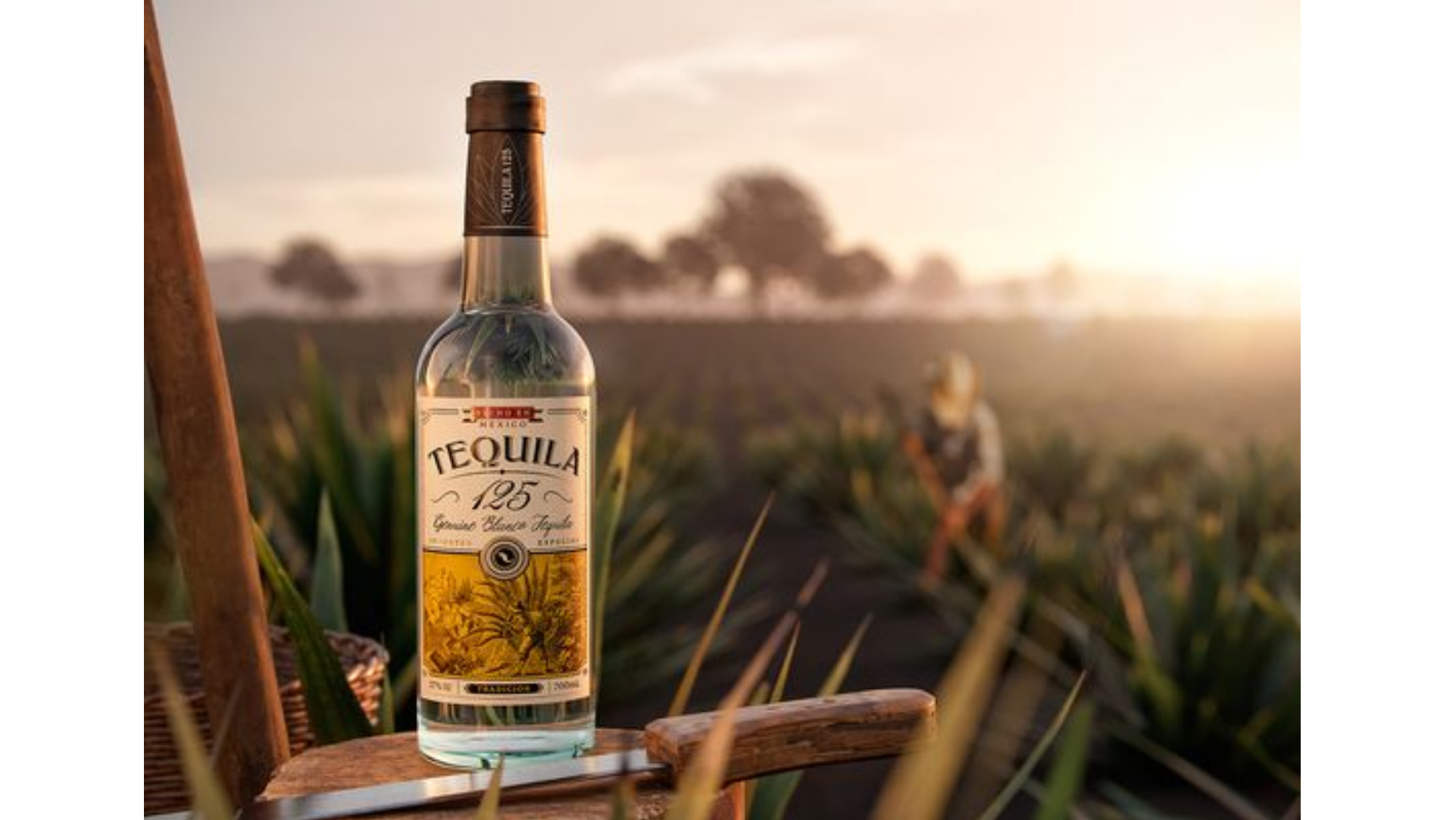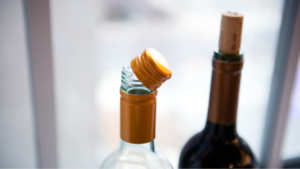Tequila liquor, like vodka, whiskey, rum, brandy, and gin, is one of the most popular alcoholic spirits in the world. For distilled spirits brand owners, unique tequila bottles are impressive to consumers, which will influence their purpose decisions. As custom glass bottle manufacturer, our glass bottle factory has witnessed the success of custom glass bottles for liquor and spirits branding markets.
Whether you are a seasoned aficionado or just beginning your tequila exploration, there is a entire world waiting to be uncovered within this iconic Mexican spirit. In this article, we will give a quick guide to tequila spirit. View the history, origins of tequila, explore the distinct five tequila tyles, difference between tequila and Mezcal, essential tequila bottles, and design custom tequila bottles.
What is Tequila liquor?
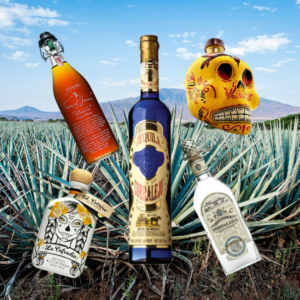
Tequila is a distilled spirit made from the blue Agave or Agave Azul, and produced only in five areas of Mexico. Though tequila liquors come from one of the five tequila areas, Jalisco is the main origin of tequila where 99% tequila liquors are made.
To be classified as tequila, the spirit must be distilled at least 51% Agave with the rest made up from another neutral spirit, no more than 49% sugar, then bottled between 35% 55% ABV. The US market stipulates a minimum of 40%, South Africa 43% and Europe 37.5%.
Tequila spirits can be drunk directly or as a basic alcohol for cocktails, for example, the famous Margarita.
History of Tequila Spirit
Tequila, the well-known Mexican spirit, has a fascinating history that traces back thousands of years.
The origins of tequila spirits can be found with the ancient civilizations of Mexico, where the Agave plant was highly valued. During 250-300 AD, the Aztecs created pulque with the sap of the Agave, which was a cloudy, slightly sour tasting alcohol drink. The indigenous peoples used the sweet snap of agave plants to make fermented beverages, which were consumed at religious ceremonies and sacred rites.
When the Spanish arrived in the 16th century, they brought with them the process of distillation. The parched Spanish conquistadors ran out of their supply of brandy and decided to distill a spirit using the agave, which is known as Mezcal today.
In the 19th century, modern tequila production began to take shape. Laws and regulations were established to define and protect the authenticity and quality of tequila. It was stipulated that true tequila must be made from the blue agave plant grown in specific regions of Mexico.
In the 20th century, the popularity of tequila grew beyond Mexico’s borders. It became a staple in bars and cocktails around the world. The alcohols of Mexico’s sweet agave nectar were popular for drinkers in the U.S and easy to access.
Today, tequila has become one of the most famous and beloved distilled spirits worldwide, with a wide range of styles and brands. Tequila liquors are not only the popular alcoholic beverages but also an important part of Mexican culture and heritage. When it comes to tequila, the first impression appearing in mind is tequila Mexico.
Main Types of Tequila
Commonly, tequila is classified into five different types: Blanco, Golden tequila or Joven, Reposado, Anejo and Extra Anejo. Each type has unique characteristics that distinguish it from the others. In the following article, we are going to explore the differences between these five types of tequila spirits.
Blanco Tequila
Blanco tequila, also known as silver or white tequila, is the purest and most straightforward form of tequila. It is made from 100% blue agave, which is grown in the Jalisco region of Mexico.
Blanco is not aged or aged for a very short period usually less than two months and bottled straight after the distillation. Because of its unaged status, Blanco tequila remains the bold and intense flavors of the agave plant. It has a distinctive taste that is sharp and fiery, fresh, and with pronounced agave sweetness and earthy notes.
Blanco tequila is highly versatile and is commonly used in cocktails like Margaritas, as its clean flavor allows other ingredients to shine.
Golden tequila
Golden tequila, also known as Joven Oro or Oro tequila, is a type of tequila that offers a unique flavor profile and appearance.
Joven is often blend tequila spirit, combined with unaged Blanco and aged tequila. This combination results in pale gold color and a smooth taste that is easy to drink.
In terms of tastes, golden tequila can be sweeter and more complex than Blanco, yet not as rich and mellow as the longer-aged tequila liquors. The unique flavor experience attracts those who prefer a less harsh tequila.
Golden tequila is a popular choice for cocktails as it adds a touch of flavor and color. However, it can also be enjoyed on its own for those who appreciate its blend of characteristics.
Reposado Tequila
Reposado tequila is a popular and distinctive variety within the world of tequilas. This tequila liquor is aged for a period of at least two months but less than a year in oak barrels. The intermediate aging gives Reposado tequila a balance of characteristics that sets it apart.
The aging process imparts a smoothness and complexity to the flavor profile. You can expect to detect notes of vanilla, oak, caramel, and spices, while still retaining the core agave essence.
Reposado tequila typically has a warm, golden color. It has a medium body and a pleasant mouthfeel. This tequila is highly versatile and is a favorite choice for both cocktails and sipping.
Whether you’re a tequila enthusiast or just starting to explore different types, reposado tequila offers a delightful and accessible option.
Anejo Tequila
Añejo tequila is a premium and aged tequila spirit. It is aged in oak barrels for a minimum of one year and up to three years. The aging process gives Anejo tequila a darker amber color or even copper shade. Anejo tequila has a smooth and velvety texture on the palate, with a long and sophisticated finish, which is perfect for sipping.
Añejo tequila has a rich and complex flavor. You might notice prominent notes of vanilla, chocolate, nuts, and a deeper, more integrated oak influence.
This premium tequila liquor is often savored on its own or used in high-end cocktails where its refined flavors can truly shine.
Extra Anejo Tequila
Extra Añejo tequila is the most aged and prestigious tequila spirit. It must be aged in oak barrels for a minimum of three years.
This extended aging period results in an exceptionally smooth and complex spirit. Extra Añejo tequilas often display rich flavors such as dark chocolate, dried fruits, toasted oak, and a refined agave sweetness. The texture is incredibly silky, and the finish is long and lingering.
The color of Extra Añejo tequila is deep and lustrous, ranging from dark amber to mahogany. Due to its high quality and lengthy aging, it is typically priced at the upper end of the tequila spectrum.
Extra Añejo tequila is best enjoyed neat or with a single ice cube to fully appreciate its nuanced flavors. It is a choice for connoisseurs and special occasions.
Differences between Tequila and Mezcal
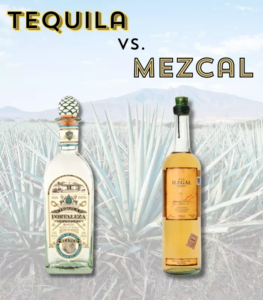
Tequila and mezcal are both spirits from Mexico but they have several key differences.
1. Base ingredient. Tequila is made primarily from the blue agave plant, while mezcal can be made from a variety of agave species, not just the blue one.
2. Production region. Tequila is produced mainly in Jalisco of Mexico and a few other nearby states. Mezcal can be produced in various states across Mexico.
3. Production process. The process of making tequila is more industrialized and regulated. Mezcal production is often more traditional and artisanal. The smokiness distinguishes mezcal and is often more pronounced than in tequila.
4. Flavor profile. Tequila generally has a cleaner and less smoky flavor. Mezcal often has a distinct smoky taste due to the cooking method.
5. Regulation and certification. Tequila has strict regulations governing its production and labeling. Mezcal also has regulations but they may be less standardized.
Develop Custom Tequila Bottles For Your Branding
It is the first thing for tequila brand owners to know the standard tequila bottle sizes. Like liquor bottles sizes for vodka, whiskey, rum, brandy, and gin, empty tequila bottles come into 375ml, 750ml, 1 liter, and 1.75 liters.
Round tequila bottle is traditional liquor bottle shape, aesthetic and visually appealing. While square tequila bottle is modern and contemporary look. Fancy tequila bottle is the powerful tool for expanding your tequila branding, conveying brand story, maximizing brand value and building brand loyalty.
As custom glass bottle manufacturer, we have created high quality unique liquor bottles with branded customizations to set your custom tequila bottles outstanding.
Distinctive Printing And Labeling

Eye-catching label design with unique graphics, colors, and fonts will represent the brand or story behind the cool tequila bottle. For example, fancy Oslo tequila bottle with black printing gives a cool, classic impression to consumers.
Custom Glass Surface Finishing
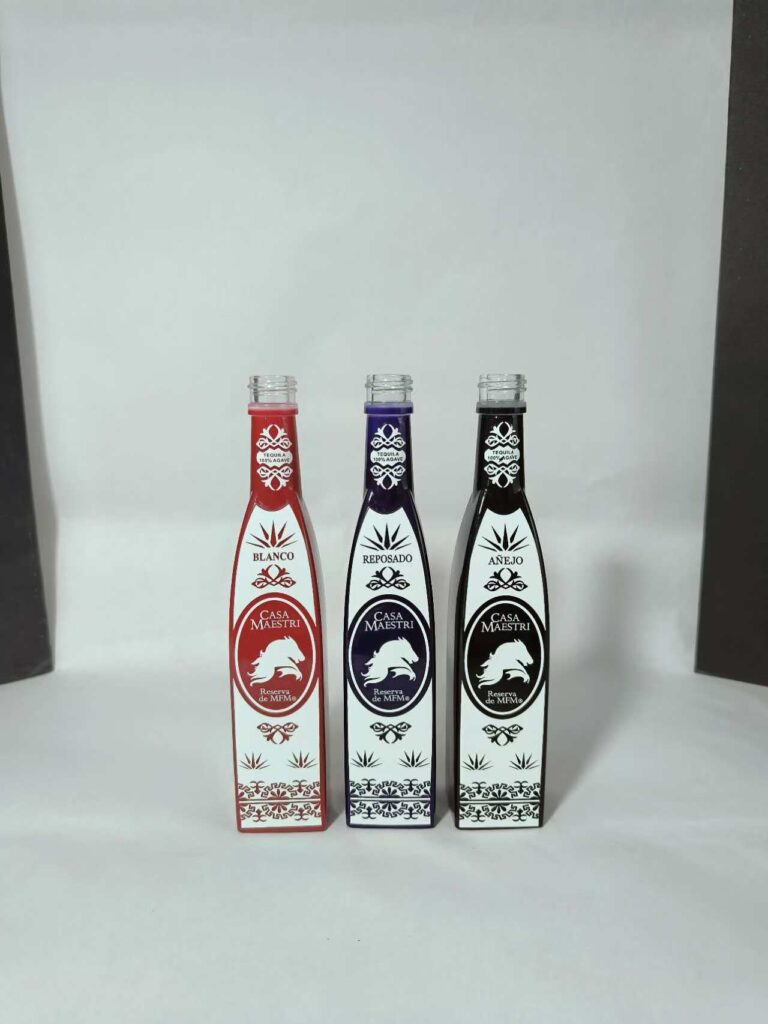
Choosing a unique color for your personalized tequila bottle or apply a special finish like frosting, Matt, metallic, custom colored coating reflect the premium quality and create a new look for tequila spirits.
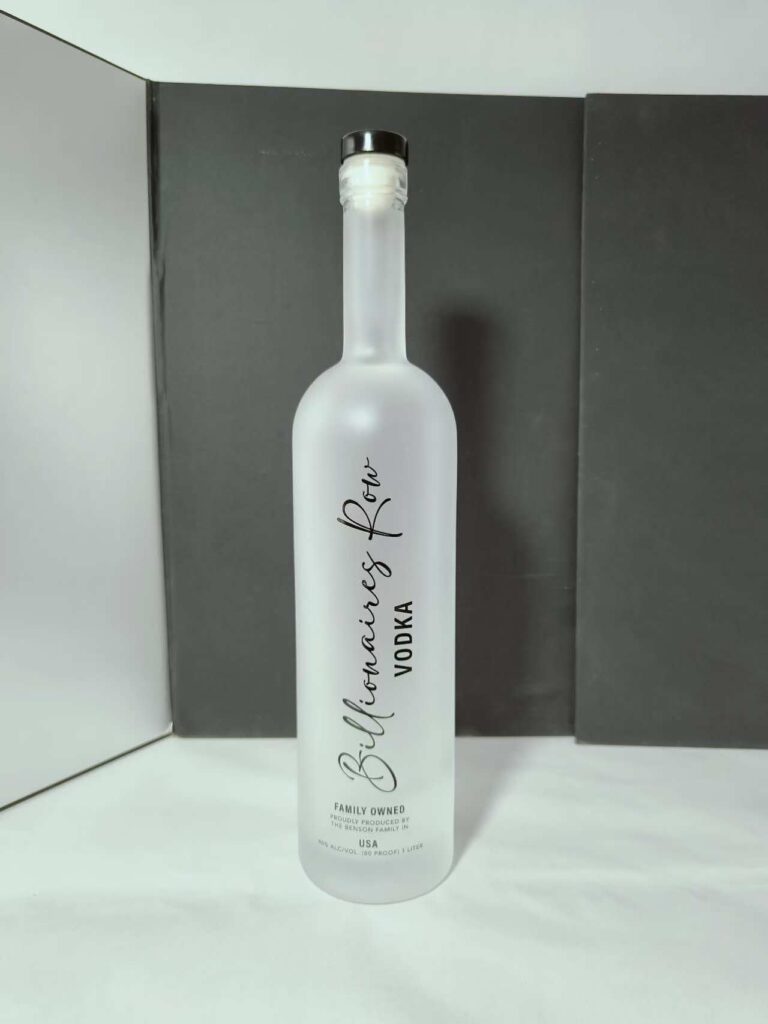
Arizona bottle is a popular liquor bottle design, sleek and modern look. Frosted glass bottles for tequila give a soft, elegant, and sophisticated look.
Black, white, blue, green, brown, pink tequila bottle enjoy great popularity.
Add Embossing, Engraving
Create custom glass bottles with embossing, debossing, textured glass surface. Embossment allows for the prominent display of a brand name, logo, or specific design, enhancing brand recognition and visibility. Textured glass bottle design provides a tactile and aesthetic appeal, setting your custom liquor bottles apart from competitors.
Unique Custom Glass Bottle Design
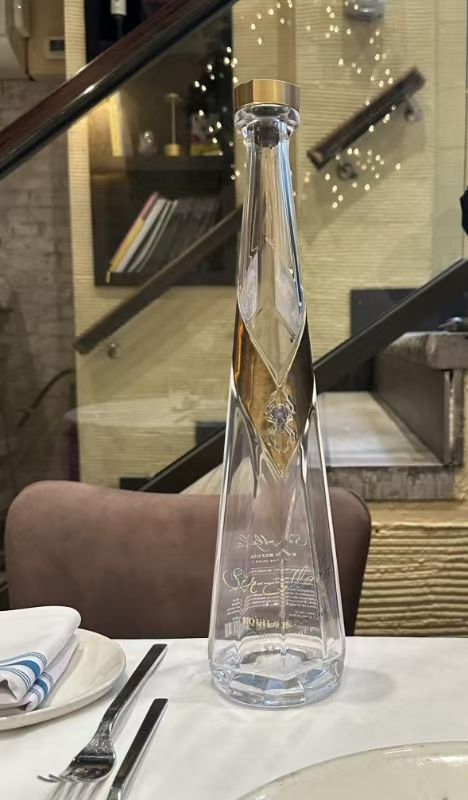
Design customized glass bottles in special bottle shape instead of the standard shapes, which will give your personalized tequila bottle an unconventional form.
Special Cap Closures
Unique caps and stoppers are impressive to people walking by. Design custom caps or stoppers that are not only functional but also decorative. Incorporate materials like leather, wood, or metal to the custom glass bottles for a luxurious feel, which adds brand value of liquor and spirits, reflects premium alcohol quality.

